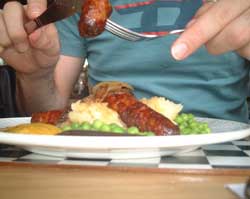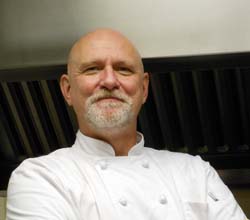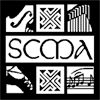

A plate of Bangers & Mash
Irish Cooking
There are many references to food and drink in early Irish literature. Honey seems to have been widely eaten and used in the making of mead. The old stories also contain many references to banquets, although these may well be greatly exaggerated and provide little insight into everyday diets.
Potatoes form the basis for many traditional Irish dishes. The potato was introduced into Ireland in the second half of the 16th century, initially as a garden crop. It eventually came to be the main food crop of the poor. As a food source, the potato is extremely valuable in terms of the amount of energy produced per unit area of crop. The potato is also a good source of many vitamins and minerals, particularly vitamin C when fresh.
Fresh meat was generally considered a luxury except for the most affluent until the late 19th century and chickens were not raised on a large scale until the emergence of town grocers in the 1880s allowed people to exchange surplus goods, like eggs, and for the first time purchase a variety food items to diversify their diet.
The last quarter of the 20th century saw the emergence of a new Irish cuisine based on traditional ingredients handled in new ways. This cuisine is based on fresh vegetables, fish (especially salmon and trout), oysters, mussels and other shellfish, traditional soda bread, the wide range of cheeses that are now being made across the country, and, of course, the potato. Traditional dishes, such as Irish stew, coddle, the Irish breakfast, and potato bread have enjoyed a resurgence in popularity. Schools like the Ballymaloe Cookery School have emerged to cater for the associated increased interest in cooking.
The Tom Thumb Culinary Stage
Our Culinary Stage was a great hit in 2012, so it will be returning in NTIF 2013, and will be relocated to a superior area in the building that used to be the Women's Museum.
We are currently searching out chefs to take up the challenge of demonstrating either a very traditional Irish recipe, or taking a traditional Irish dish and giving it a new twist.
After each demonstration chefs will provide small samples of the dish and make the recipes available to the audience. Note, the audience size will be limited, and seating will be on a first-come basis. Admission is restricted to those over 21 for the wine pairings.
The Chefs
Adam Adkins
Chef Adam Adkins is the owner of Cornucopia Catering, a catering and food services company based in Dallas, Texas. He is classically trained in the Continental fashion and specializes in cuisines of the Mediterranean and Middle East. He enjoys fusion dishes, translating the tastes of other cultures' foods to create innovative combinations of flavors while remaining true to the source cuisines.
He is also very interested in nutrition, and has made it his goal to prove that nutritionally healthy food can still be a rich and flavorful experience. Chef Adam has catered meals for events ranging from corporate, to sporting, to formal, and his company is currently the provider of food services to Dallas Theological Seminary.
Chef Adam will be your host throughout the weekend on the Culinary stage, as well as demonstrating how to prepare one of his own recipies.

